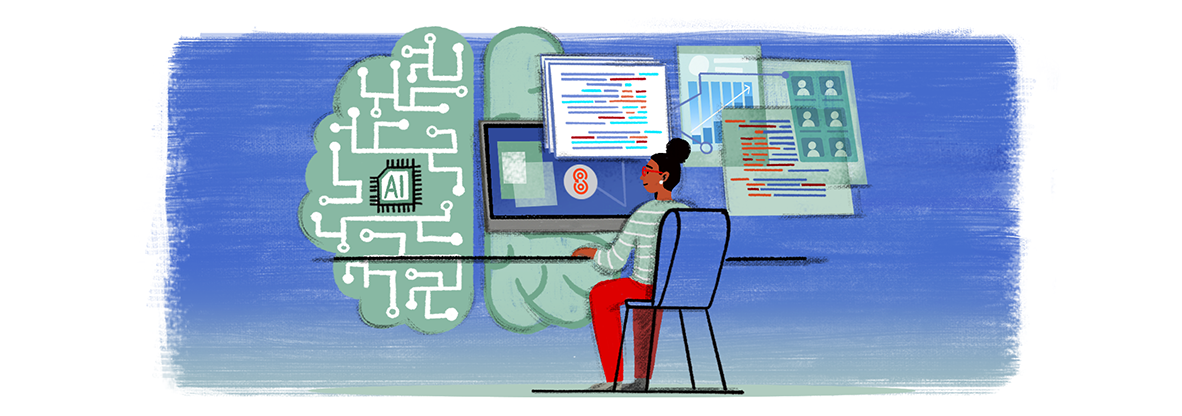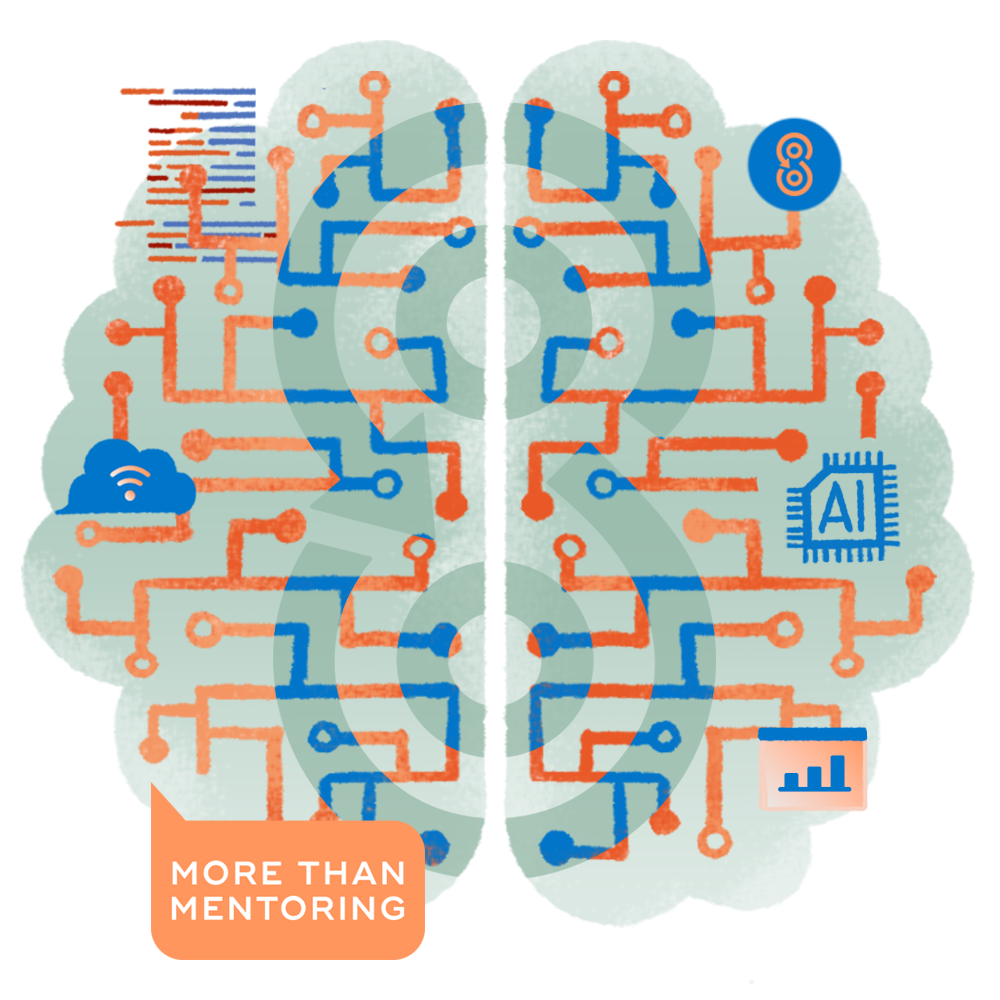Is AI Changing IT? And What Does That Mean For IT Professionals?

In the last couple of years, as AI tools such as ChatGPT and Stable Diffusion have gained widespread attention, they’ve also been a constant source of controversy. Some people love them, others hate them, and many are simply afraid that their jobs may soon be automated away.
While the full impact of AI is a complicated and constantly evolving debate, here at Career Navig8r we’re most interested in the people who’ll be using it. That’s why today, we’ll be taking a closer look at how AI will affect the IT industry, what the future of AI in IT may look like, and what you can do to secure your career in the long run.
Breaking The Hype Cycle
Let’s start with a problem – the technology hype cycle.
New technologies always go through a hype cycle. This is a period of time in which many use cases are more driven by excitement than practicality. The technology itself becomes a buzzword that any company will clamour to use in the hopes that this will increase their stock price.
Right now AI is going through exactly this kind of a hype cycle. Many companies and products – particularly in the SAAS (Software As A Service) space – are eager to push their AI tools but these tools aren’t always all that practical or useful.
On the other hand, AI can be incredibly useful, cutting down on needless busywork and creating new possibilities. Put simply, it’s an amazing technology in the right use case. But how can you identify the correct use case?
The Right Tools in The Right Hands
This is where IT experts really come into their own, especially those who have a good understanding of how AI tools work. Anyone with experience of AI tools will know that, while they can have some incredible strengths, they can also have some incredible weaknesses.
Without this experience, working with AI tools can be quite risky. In handing control over to a black box system – one where the exact processes can’t be monitored or adjusted – you’re taking the risk that the AI tool will either falsely interpret its instructions or ‘hallucinate’ wrong information.
But it’s not just about when to use AI and when not to use AI. The really important skill that comes with this experience, is how to design a system that utilises the strengths of AI while still leaving room for human monitoring.
While it’s true that some companies may be attempting to ditch many of their IT staff in favour of purely AI-based solutions, the flaws in that logic are becoming increasingly apparent. So long as AI has the potential to make mistakes, IT professionals will continue to play a vitally important role.
The Future of AI and IT jobs

With all this in mind, it’s worth noting that the future of AI and IT jobs is still more than a little uncertain. Will AI affect the IT industry in negative ways?
It’s important to note that, as many companies try to embrace AI, some will seek to use this as an opportunity to pay their IT staff less. This is probably the biggest threat that AI poses towards IT jobs because while IT staff will still be vital their skills may effectively be devalued.
That being said, there is another way to make use of IT skills, and one that’s only becoming more valuable as AI tools continue to threaten a wide range of jobs. Keep reading to find out more.
What AI Means For IT Mentors
Just as IT roles will continue to be vitally important, so too will effective IT mentoring. That being said, AI is definitely having an impact on IT mentoring and the skills Mentees are looking to learn.
While traditional IT skills are still as valid as ever, some Mentors are now specialising in AI-related skills, such as working with APIs to create your own AI tools and integrating existing AI tools into your system.
Of course, right now we’re only starting to come out of the hype cycle phase, meaning that it’s hard to estimate the longevity of an AI-based skill set. While it’s undeniably useful to have knowledge of working with AI, IT professionals will also need a broad grounding in general IT concepts.
All this to say that there’s more room than ever before for IT Mentors – particularly those who are willing to specialise. No matter your specialist area, if you’ve got the skills and experience to Mentor IT then there’s someone out there who’ll be willing to pay for your time.
Did you know that becoming an IT Mentor with Career Navig8r is a quick and easy way to find Mentees? Just sign up today, give us some details about your experience and qualifications, set up your profile with your own rates, and wait for Mentees to come to you. It couldn’t be easier!


